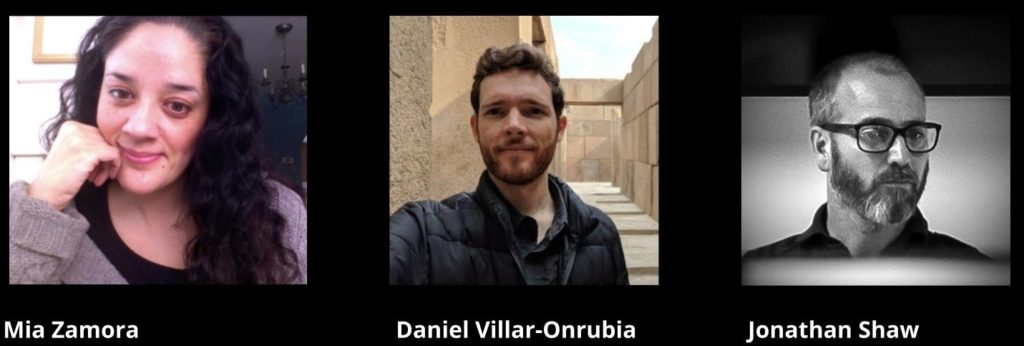Description
When we first decided upon the theme of care in summer 2019, we had no idea that “care” would take on the significance and sense of urgency it has now. As we find ourselves facing a global pandemic together, our new and startling reality is upending just about everything we know. What is clear is that this moment demands a certain reconsideration of our responsibilities to ourselves and the communities we participate in. And it is also clear that our thoughtful use of online technologies and our openness in the age of “social distancing” will play a critical role in our response to the challenges we now face. As we are all struggling to cope, and as we make new decisions about our daily lives and daily responsibilities, the question of care must take center stage.
Care might seem at first glance a “soft” term, one we all may associate with nurturing and nourishment, kindness and consideration. And these associations with care are worthwhile. #OER20 will put the spotlight on both the value and limitations of care in Open Education, covering issues of privilege, equity, precarity, power relations, and public interest. We hope to dig deeper and lend this term a kind of rigor not previously considered in depth in open education circles. The ultimate goal of caring dispositions, activities, and practices is to bring about well-being; to have an impact on our world that enables us “to live as well as possible” (Fisher & Trento 1990). Open educational and scholarly practices can be framed as a form of care when challenging models that prioritize individual gains or profit over the well-being of communities (Deville et al. 2018). But in the age of pandemic, of data surveillance and significant risk on the open web, how can we map out and give visibility to the critical components of care practices? How can we build sustainable communities, participatory practices, and civic engagement for the public good and a healthier democracy?
The image of our #OER20 soup has been drawn by the very talented Bryan Matthers after a conversation we had last summer. Soup is nourishing. It can fortify the body and soul. But soup has also been commodified, mass-produced and distributed. Andy Warhol famously appropriated the can of soup from mass media, questioning (and perhaps believing in) the scale-up of consumer culture. We see similar tensions when thinking about care in openness and education.
Our rapidly escalating global health crisis has clearly presented us with a situation that goes well beyond the usual challenges we tend to face when organizing an OER conference. We acknowledge the unique occasion that these circumstances offer. A clear realization of the importance of caring pedagogies, and a deeper understanding of how open education can engender communities of care, is a critical step we are all taking together.
We also understand the deluge of online communication and labour that has hit this community since the universal “pivot” to online instruction. We would be remiss if we did not mention the critical importance of self-care at this stage in our lives. No matter what your time zone please, pace yourself, be kind to yourself, and take what you can from this online version of the #OER20 conference.
It is true that this is a painful and fearful time, but in crisis, often we also have the chance to realign our commitments and priorities, and identify what is critical as we move forward with hope. Crisis literally means a turning point where things can get better or worse. Our hope is that new conversations will be engendered, new partnerships will be formed, and collaboration will help shape a pathway forward through this difficult time of unknowns. We want to imagine the world that emerges from this crisis will be a more caring one. We are indeed encouraged by the enthusiastic response to the registration which is now above 8oo participants, and we take hope in that many of those now registered may be new to this conference and community. For now, we would like to take this opportunity to thank and acknowledge all of the hard work that has got us this far. We are indebted to ALT, the committee and the OER Community at large for helping shape this very special version of OER20!
Take care, stay safe, and many virtual hugs,
Daniel, Jonathan, & Mia
One last note…
We have launched a SPLOT-site inviting all participants at the OER20 Conference to introduce themselves to the rest of the community (and the world!). Please make sure you go to https://oer20.socialbingo.oerconf.org/* and follow the instructions under the “share” tab (Password: takecare) before the start of the conference, as we will be relying on it to foster new conversations throughout the conference. In you are on Twitter, once you have contributed please share a link to your post along these two hashtags: #OER20 #OER20who.
*Thank you to Alan Levine (@cogdog) and Reclaim Hosting for helping with this space

Participants
-
joined 5 years, 11 months ago
-
joined 5 years, 11 months ago
-
wentale
joined 5 years, 11 months ago -

Anna Page
joined 5 years, 11 months ago -
Hilary Snelling
joined 5 years, 11 months ago -
louisedrumm
joined 5 years, 11 months ago -
Leo Havemann
joined 5 years, 11 months ago -
joined 5 years, 11 months ago
-

Amanda Harrington-Vail
joined 5 years, 11 months ago -
kathyessmiller
joined 5 years, 11 months ago -
Teresa MacKinnon
joined 5 years, 11 months ago -
joined 5 years, 11 months ago
-
vmarinj
joined 5 years, 11 months ago -

Taskeen
joined 5 years, 11 months ago
